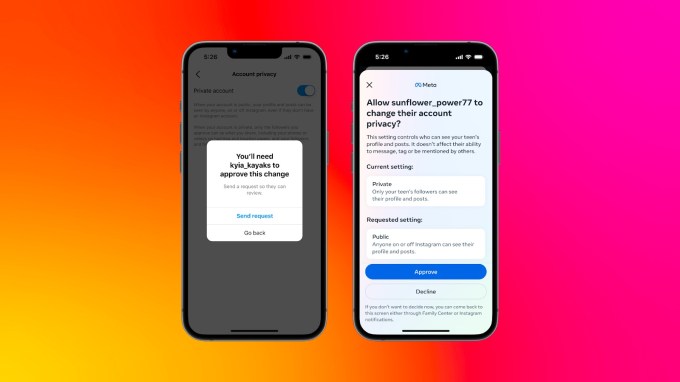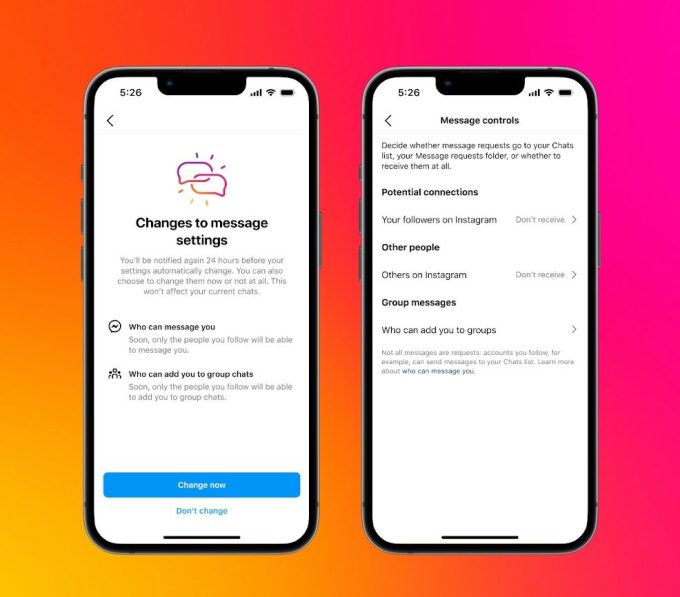
Image Credits: Alexander Shatov (opens in a new window) / Unsplash
Meta has announced the implementation of new direct messaging (DM) restrictions on both Facebook and Instagram for teenagers. Previously, Instagram restricted adults over the age of 18 from messaging teens who didn't follow them; now, these limitations will apply to all users under 16 (and in certain regions, under 18) by default. Messenger users will now only receive messages from Facebook friends or people in their contacts.
Additionally, Meta is enhancing parental controls by enabling guardians to permit or deny changes in default privacy settings made by teens. Previously, when teens modified these settings, guardians received notifications but couldn't take any action. For instance, if a teen attempts to switch their account from private to public or adjusts controls related to direct messaging, guardians now have the ability to block these changes.

Image Credits: Meta
Meta had initially introduced parental supervision tools for Instagram in 2022, providing guardians with insights into their teens' usage. The company also plans to launch a feature preventing teens from viewing unwanted and inappropriate images in their DMs from people they are connected to. This feature will function even in end-to-end encrypted chats and aims to "discourage" teens from sending such images.

Image Credits: Meta
While Meta did not specify privacy measures for teens or define what it considers "inappropriate," it recently rolled out tools to restrict teens from accessing self-harm or eating disorder content on Facebook and Instagram. The company is currently under scrutiny for child safety concerns, facing requests for information from EU regulators and a civil lawsuit in New Mexico alleging that Meta's social network exposes teen users to sexual content and predators. Meta is scheduled to testify before the Senate on January 31, along with other social networks, on child safety issues.
1 Comments
Nice one
ReplyDelete